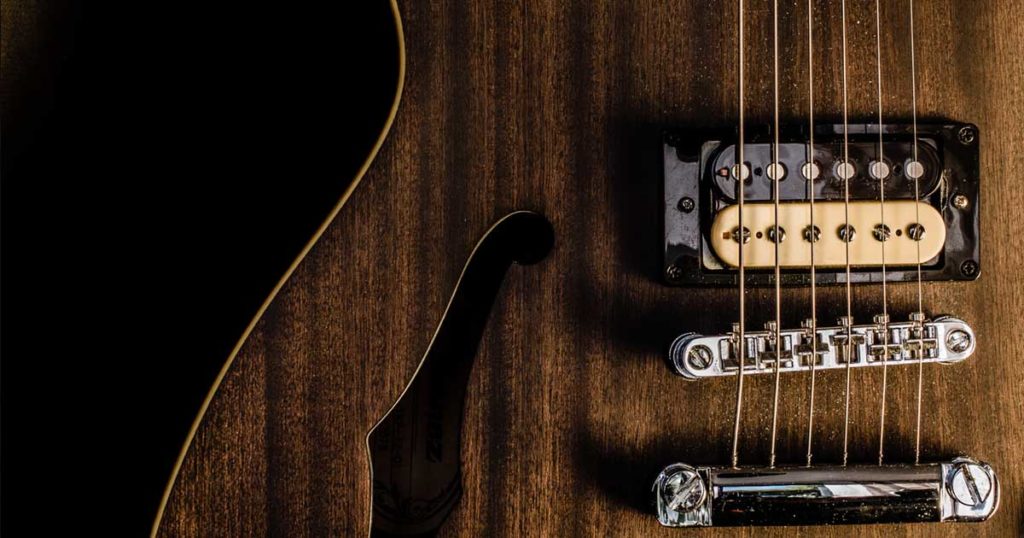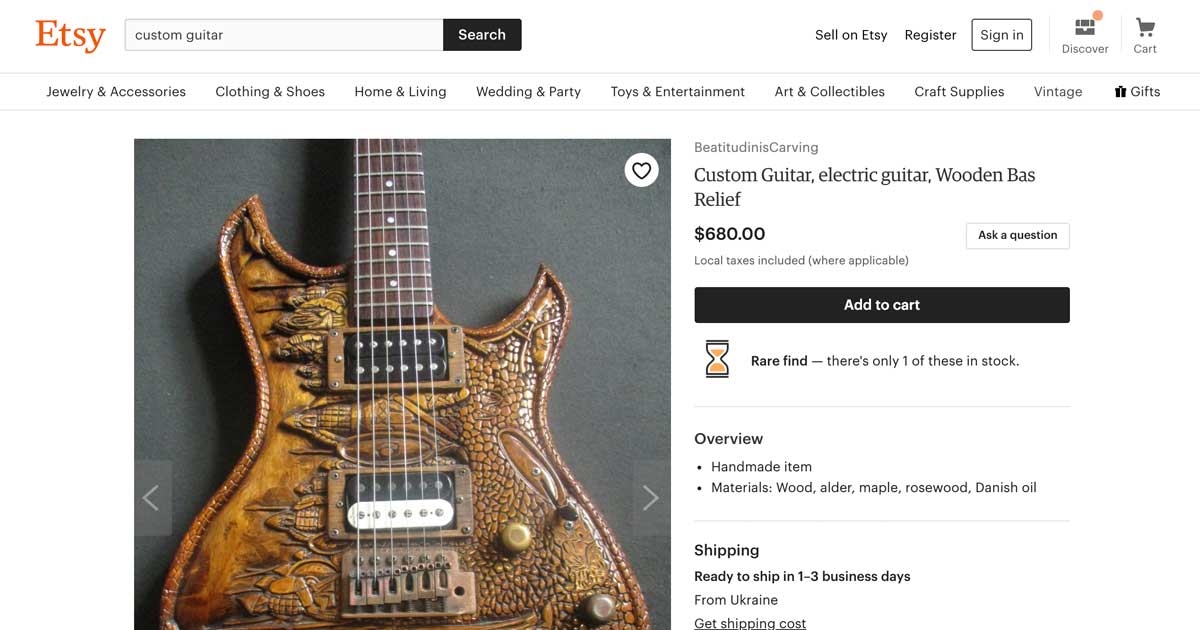Les Paul knew his guitars were great. He went to Gibson time and time again for seven years before they were convinced a solid body electric guitar would sell to the masses. Ultimately he was correct, and his guitar design is still one of the most popular guitars in the world.
As craftsmen and musicians, there’s nothing better than creating a guitar that produces excellent sound and has beautiful lines. You’ve probably gotten compliments on your guitars and even had some commissioned to be made. But how do you spread the love even further? You may have wondered how to effectively sell the guitars you put so much time and effort into.
If you’ve thought about selling your guitars or wondered about how much demand there is for a custom 5-string, then you might want to consider one of these ways to market and sell your merchandise. Even if you just make and sell as a hobby, you can meet some great people and learn more about crafting great instruments for real musicians.
1. Try Selling on Etsy
At some point in your life, you’ve probably stumbled across Etsy. They have great deals on guitar picks, stands, and some awesome homemade straps.
If you haven’t thought about selling your guitars on there, you should.
One of the great things about selling on Etsy is you don’t have to have a huge inventory – you can just sell the guitars you make in your free time.
Etsy also makes one of the best ways to sell your upcycled projects, so get to work on your next cardboard Stratocaster or 3-string shovel guitar.
Etsy is one of the more popular sites for handmade products, and their fees are reasonable, considering their traffic. They have a 20-cent listing fee, a 3.5% transaction dee, and a minimal processing fee. Considering your guitars will be exposed to people across the country and beyond, the fees are very reasonable.
2. Create an Online Shop with Shopify
Do you have ten too many guitars and more on the way? If so, you might want to sell them in an online shop rather than listing them on eBay or Etsy.
Shopify lets you create an entire shop and website, so you can have your own online guitar shop. You can even start a blog and share videos of your guitars in action.
To start using Shopify, you have to set up a domain name, design your website, and add your guitars.
They handle the payment for you, so you don’t’ have to deal with that. Most people appreciate that Shopify lets them have control over what their website looks like, but the templates make it uncomplicated.
3. The Local Arts Market is a Great Place to Meet Potential Customers
Maybe you’ve played at your local art market or maybe you’ve strolled through on a Saturday, but have you thought about selling your guitars there?
Your local Saturday crafts or green market can be a great way to show off your talent for making impressive guitars.
Local markets usually charge a fee to rent space, and sometimes for the application, but not all of them. They’re usually pretty easygoing about how you set up your space.
You may want to ask about being near an outlet, though–not all markets have access to electricity for every vendor.
The best part about the market is the people you’ll meet that will appreciate your work.
4. Try Instrument Consignment Shops
Many young guitarists want a show-worthy guitar with great sound, especially when they first start playing shows.
There’s a good chance they will check the consignment shops before buying new. Your one-of-a-kind guitar might be the one they want.
Collectors frequently stop by consignment shops to see what turns up, too. Many would be thrilled to find a custom-made guitar from a local craftsman.
Most consignment stops will help you assess the value of your guitars based on the condition and functionality. While their expertise can be very helpful, you will want to make sure you get the value you think is fair after they take their cut.
Most consignment shops will charge between 15-35%.
5. Social Media
If you already have 700 Facebook followers, you already have 700 potential customers.
Use your social media as a way to market your guitars. You probably post pictures of your work already, try to add a note that asks if anyone is interested in buying.
You can even use Facebook or Instagram to help set your prices by asking what your friends would be willing to pay for your guitars.
If you want to sell a lot of guitars, you can try Facebook advertising. They charge a cost-per-click fee, usually around 27 cents every time a person clicks on your ad.
Putting your guitars up for sale serves two purposes…the first being, obviously, to make money. But what if they don’t sell? That’s no problem, because the second purpose in putting your guitars up is for the advertising. You may not make a sale immediately, but you’re still getting your name and your work out there.
Often times, people will consider a purchase for weeks, months, or even years. Musicians generally aren’t fickle or frivolous when it comes to purchasing a new instrument. If you can get on someone’s radar, you may have secured yourself a sale down the line.
So don’t be disheartened if sales are slow to start – just keep building and getting your work out there.

